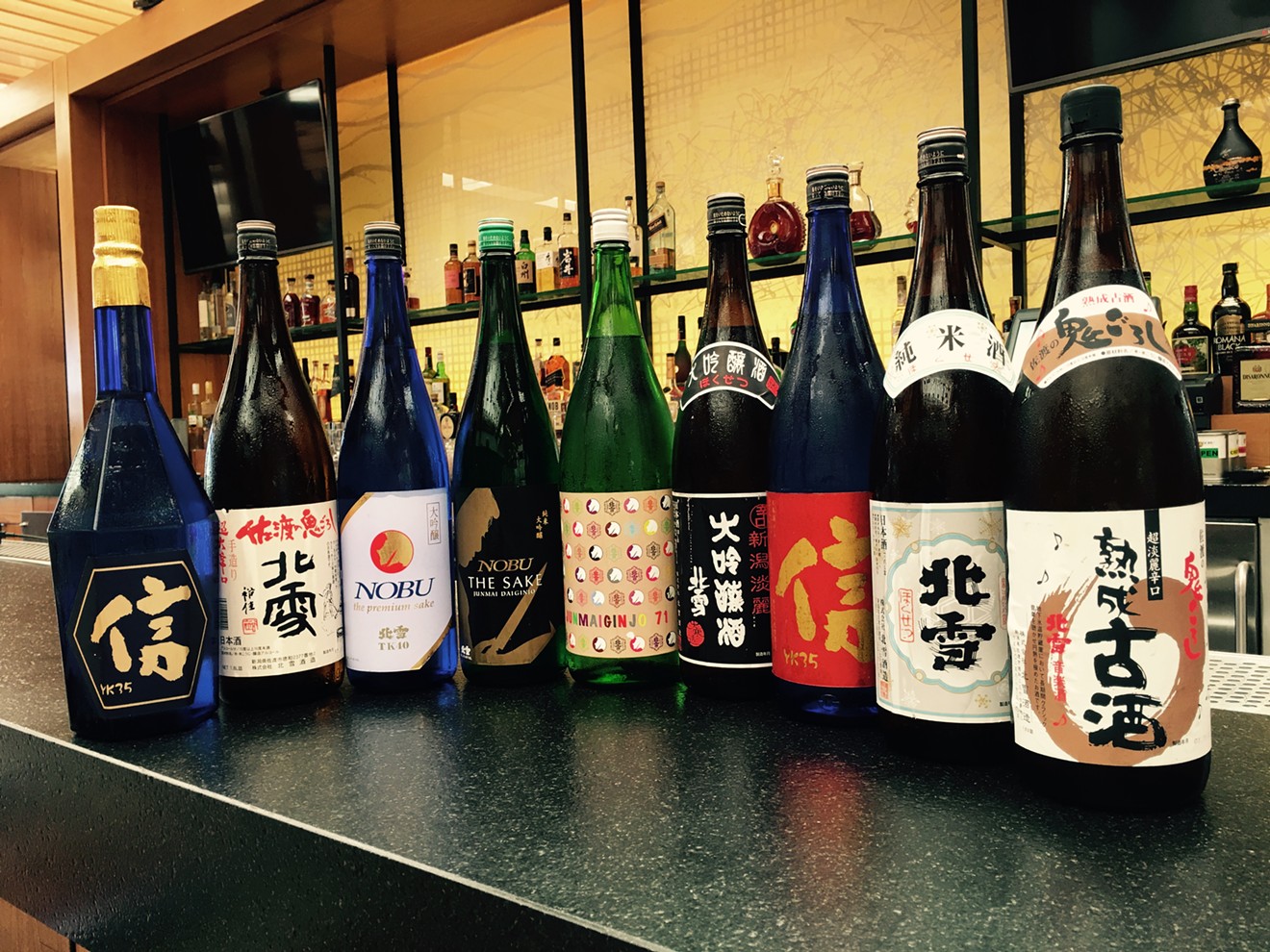Anybody in Florida who hopes to start a sake company might be a little disappointed to learn how the alcoholic beverage will be treated from now on.
Beginning July 1, sake will be taxed higher, as a wine rather than a beer. The tax hike stems from House Bill 689, which Gov. Rick Scott signed into law last week.
The law is wide-ranging and affects many aspects of the alcoholic beverage industry in Florida. Changes include reducing the annual craft distillery licensing fees from $4,000 to $1,000; easing regulations for caterers to sell beer, wine, and spirits; and allowing minors to work in stores that sell alcohol as long as they're supervised by an adult.
The new law also changes the definition of wine to include sake, a traditional Japanese alcoholic drink made from fermented rice. This part of the law wasn't included in the original bill, which was co-authored by Rep. Colleen Burton (R-Lakeland) and Sen. Keith Perry (R-District 8), and it appears to have been added at the last minute.
According to Florida law, wine is defined as a beverage containing fermented "fresh fruits, berries, or grapes," while beer is defined as "brewed beverages containing malt."
Sake is often referred to as rice wine, but that doesn't necessarily mean it's wine. Adam Feingold, cofounder of Pompano Beach's Bangin' Banjo Brewing Company and a BJCP-certified beer judge, says rice is considered an adjunct (or supplemental) ingredient. It's not necessarily malted (in the form of a syrup containing the grain's various sugars), although it can be. "I can see how it can go either way, to be completely fair," Feingold says.
Another consideration, Feingold adds, is whether the federal government's Alcohol and Tobacco Tax and Trade Bureau regulates sake as a beer, which it does.
Doral's M.I.A. Beer Company makes Big in Japan, a 9.5 percent ABV beer brewed with malt, rice, and sake yeast.
One argument that sake is more like wine is that inosinic acid, according to the Japan Times, is produced in sake as the rice ferments (and also happens to contribute to the umami, or savory taste, in Japanese cooking). The same substance is also produced in wine, although at a much slower rate, according to the Japan Times.
Now that Florida defines sake as wine, vendors can expect to pay up to $280 in annual state license taxes, compared to $200 for beer. Though this amount not seem like much, consider the excise taxes. For beer, the state levies a tax of 48 cents per gallon in bulk, whereas wine is taxed $2.25 per gallon.
Representative Burton did not immediately respond to New Times' request for comment.
[
{
"name": "Air - MediumRectangle - Inline Content - Mobile Display Size",
"component": "19274298",
"insertPoint": "2",
"requiredCountToDisplay": "2"
},{
"name": "Editor Picks",
"component": "17482312",
"insertPoint": "4",
"requiredCountToDisplay": "1"
},{
"name": "Inline Links",
"component": "18711090",
"insertPoint": "8th",
"startingPoint": 8,
"requiredCountToDisplay": "7",
"maxInsertions": 25
},{
"name": "Air - MediumRectangle - Combo - Inline Content",
"component": "17482310",
"insertPoint": "8th",
"startingPoint": 8,
"requiredCountToDisplay": "7",
"maxInsertions": 25
},{
"name": "Inline Links",
"component": "18711090",
"insertPoint": "8th",
"startingPoint": 12,
"requiredCountToDisplay": "11",
"maxInsertions": 25
},{
"name": "Air - Leaderboard Tower - Combo - Inline Content",
"component": "17482313",
"insertPoint": "8th",
"startingPoint": 12,
"requiredCountToDisplay": "11",
"maxInsertions": 25
}
]










